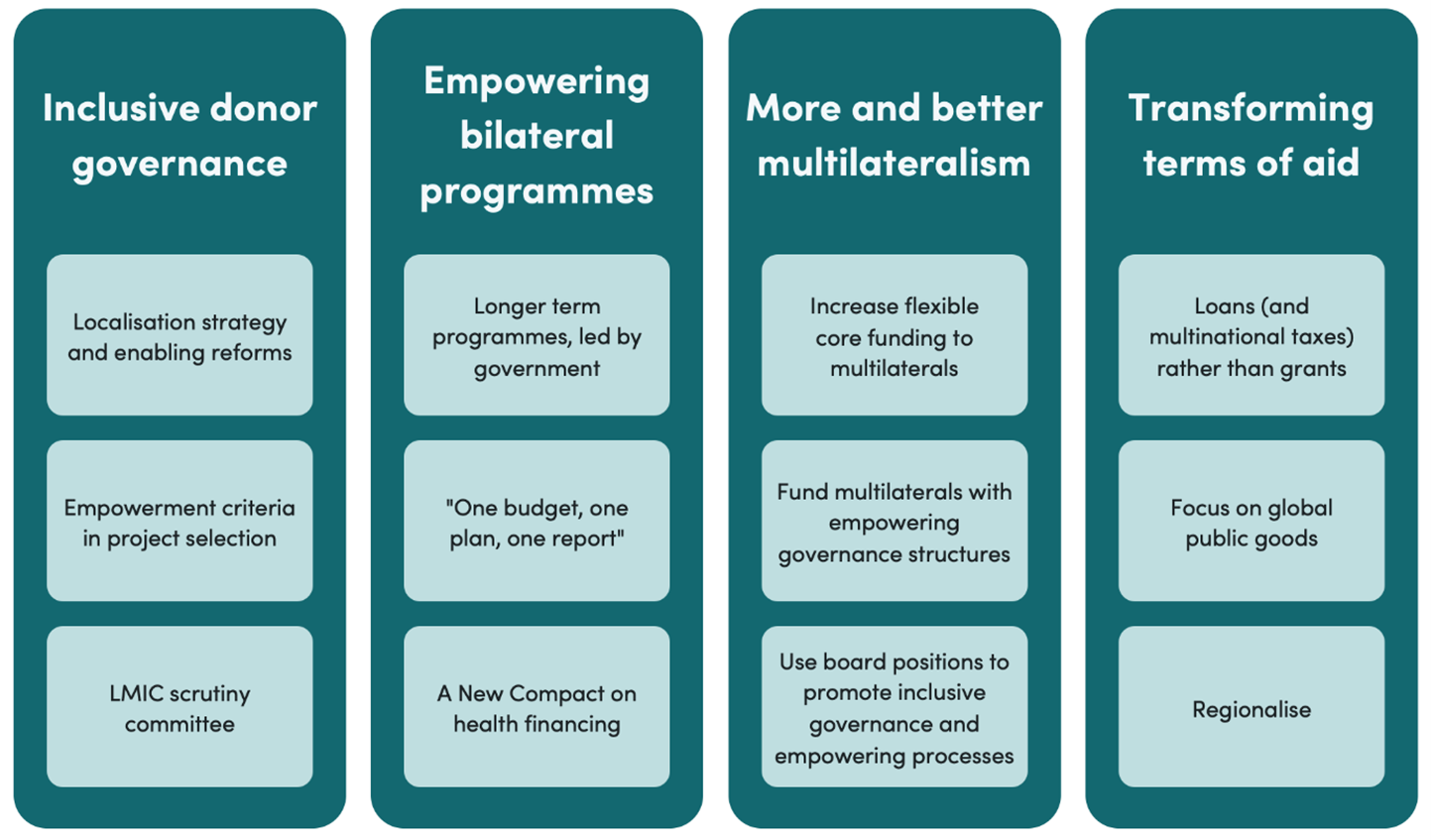In a recent survey, 640 development policymakers and practitioners in 100 developing countries were asked about the best ways to improve foreign aid so that it can have the most beneficial impact possible. The number two response, as discussed in this blog post and this report for CGD's MCA Monitor, was: "providing payments to the government based on specific measurable improvements in development outcomes", a concept CGD has proposed as Cash on Delivery Aid. (Number one was "Aligning all forms of aid with the government's national development strategy" - something we think is related because the first step of a COD Aid approach is for the funder and recipient to agree on an outcome that the receiving government wants to achieve.)The survey, led by Bradley Parks and Zachary Rice of the College of William and Mary, was conducted to determine whether the model of foreign aid used by the Millennium Challenge Corporation - making eligibility for funding contingent upon a range of policy performance measures - creates incentives for policy reforms (my colleague Sarah Rose provides a good summary of the survey findings here). Before asking any questions specifically about the MCC model, the survey asked respondents to identify their top priorities for aid reform. This large sample of policy makers and practitioners gave support for expanding the use of results-based aid. The idea of linking aid to outcomes was cited by 37% of respondents - more than other ideas like tying aid to governance, economic or social indicators; eliminating parallel project implementation units; eliminating "tied aid"; providing all or most aid through budget support; or eliminating all conditionality.Four stakeholder groups were surveyed: U.S. government representatives, partner government representatives, contractors or others implementing agencies, and a group representing civil society and the private sector. More than one third of respondents from each group identified a shift toward a more COD Aid-like approach as being among the three most valuable policy changes. The voice of partner country governments was particularly important to the survey; 364 of the 640 survey respondents were from the governments of developing countries, including heads of government, ministers, deputy ministers, and other senior level officials, and 38% of them favored trying COD aid approaches over other ideas.As the survey report's authors and Sarah Rose acknowledge, the survey is subjective and represents the views of a population that has had some interaction with Millennium Challenge Account programs. Though its findings are certainly not definitive, it is still the biggest attempt to date for soliciting the views of decision-makers in so many countries regarding results-based aid. Consistent with what colleagues and I heard when we explored the feasibility of COD Aid in a number of developing countries, the interest in results-based aid is not just coming from donors. Developing country governments themselves see benefits of COD Aid, as a way to assume ownership of their domestic programs and to have greater flexibility in using foreign aid while maintaining accountability for achievements.
CGD blog posts reflect the views of the authors, drawing on prior research and experience in their areas of expertise.
CGD is a nonpartisan, independent organization and does not take institutional positions.





